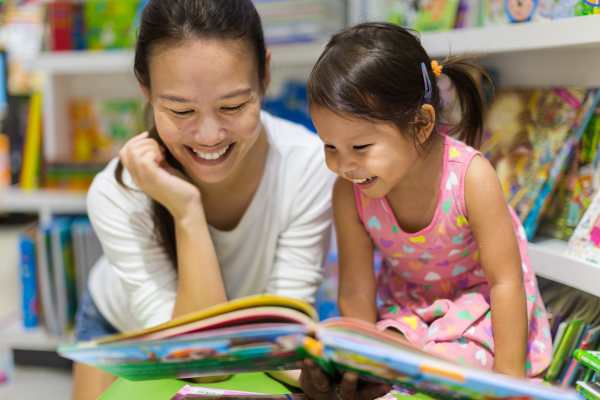Conscious parenting techniques are essential for building meaningful relationships with your children. These methods focus on fostering connection, trust, and emotional security. By adopting these practices, you can help your child grow in a nurturing environment while strengthening your bond as a parent.
Parenting in today’s fast-paced world is challenging, but being intentional and mindful in your approach can make all the difference. By prioritizing empathy, communication, and presence, you create a space where your child feels understood and valued, which is key to their development.
Throughout this article, I’ll guide you through actionable strategies—like active listening and positive discipline—that you can implement right away. These techniques will not only strengthen your connection but also support your child’s emotional and cognitive growth. Let’s dive into the details.
Why Strong Parent-Child Bonds Matter
Establishing a strong bond with your child is critical to their emotional and social well-being. When a child feels secure and supported at home, they are more likely to thrive in other areas of life, such as school and friendships.
Children with secure parent-child bonds often develop higher self-esteem and emotional intelligence. This foundation allows them to express themselves more freely and handle life’s challenges with confidence, knowing they have unconditional support from their parents.
The strength of this bond doesn’t just affect emotional health—it also impacts cognitive development. Children who grow up feeling connected to their parents often show better focus, learning abilities, and resilience in academic and social environments.
The Key Principles of Conscious Parenting
Conscious parenting revolves around being fully present and intentional in your interactions with your child. The key principles include mindfulness, empathy, and respect, creating a relationship where both parent and child feel heard and valued.
Mindfulness allows parents to respond rather than react, creating more thoughtful and empathetic connections. By practicing mindfulness, you model emotional regulation, which helps children develop the same skills as they grow.
Respect and empathy go hand in hand in parenting. When you approach your child with understanding, they feel safe to express themselves and trust your guidance, fostering a deeper and more respectful relationship.
Communication: The Foundation of Strong Bonds
Open and honest communication is the cornerstone of any strong relationship, especially between parents and children. Clear, respectful conversations help children feel valued and understood, which strengthens the emotional bond.
Active listening plays a crucial role here. When you listen to your child without judgment or interruption, you show them that their feelings and opinions matter. This practice not only builds trust but also encourages your child to be open and honest with you.
Communication is about connecting, not just talking. By having regular, meaningful talks with your child, you provide a secure area for them to share their thoughts and worries, thereby strengthening your bond over time.
Positive Discipline for Lasting Relationships
Discipline in conscious parenting emphasizes guidance rather than punishment. Positive discipline teaches youngsters about the consequences of their actions while preserving their dignity and self-worth.
Instead of relying on punitive measures, positive discipline encourages problem-solving and critical thinking. This approach helps children learn responsibility while fostering a respectful and cooperative family dynamic.
Through consistent boundaries and encouragement, positive discipline strengthens relationships. It promotes trust and respect, helping children feel secure while guiding them towards better decision-making.
Quality Time and Emotional Connection
Spending quality time with your child is one of the most effective ways to strengthen your bond. In today’s busy world, setting aside time for meaningful interaction is essential to building a deeper connection.
Whether it’s through shared activities or simple conversations, quality time helps children feel valued and supported. These moments create lasting memories and reinforce the emotional security they need to thrive.
Family traditions and routines can also play a crucial role. By establishing regular rituals, you provide stability and create opportunities for bonding, which strengthens the emotional ties between you and your child.
Self-Care for Conscious Parents
Caring for oneself is an important part of being a good, attentive parent. Prioritizing your health prepares you to face all of the challenges of parenting with patience and clarity.
Balancing your needs with parenting responsibilities can be tough, but it’s essential. By setting boundaries and making time for relaxation, you model healthy habits that your children will learn from.
Remember, when you take care of yourself, you’re not only improving your well-being—you’re also creating a more positive and supportive environment for your child to grow in.
Frequently Asked Questions
How do conscious parenting techniques differ from traditional methods?
Conscious parenting focuses on mindfulness, empathy, and communication, while traditional methods may rely more on discipline and authority. It’s about being intentional and present in your interactions with your child, helping them feel heard and valued.
Can conscious parenting techniques improve my child’s behavior?
Yes, conscious parenting can lead to better behavior by encouraging emotional regulation, responsibility, and problem-solving. Positive discipline, a key element, helps children understand consequences without feeling punished, fostering cooperation and respect.
What are some practical ways to practice conscious parenting daily?
You can practice conscious parenting by actively listening to your child, spending quality time with them, and using positive reinforcement. Setting clear limits and being aware of your own emotional responses also help to promote a more balanced parenting style.
How does conscious parenting benefit my child’s development?
Conscious parenting promotes emotional security, which is crucial for both cognitive and social development. Children who feel connected to their parents tend to perform better academically, have higher self-esteem, and develop strong interpersonal skills.
Is conscious parenting suitable for all age groups?
Yes, conscious parenting techniques can be adapted for children of all ages. Whether your child is a toddler or a teenager, the principles of mindfulness, empathy, and open communication remain effective in building strong, supportive relationships.

Emily Johnson is a writer focused on personal development, relationships, and well-being. Her articles offer practical advice for self-discovery, growth, and effective communication. With a blend of empathy and expertise, she guides readers toward a more fulfilling and balanced life.

